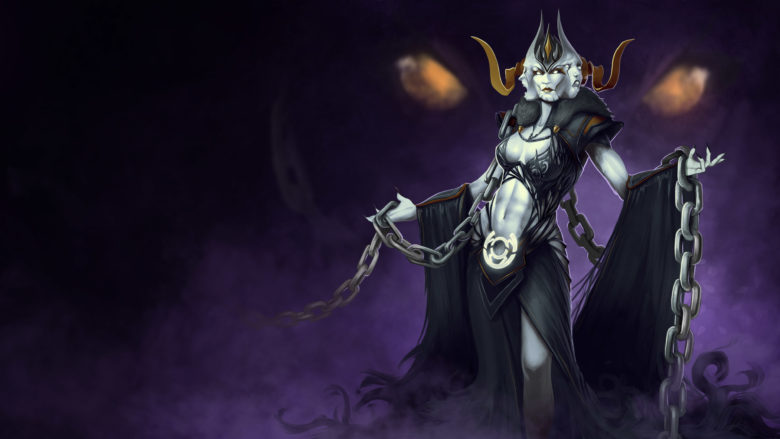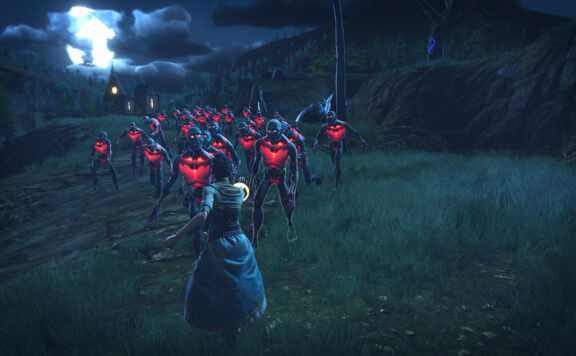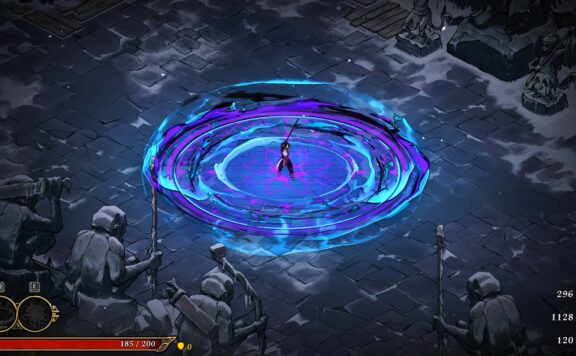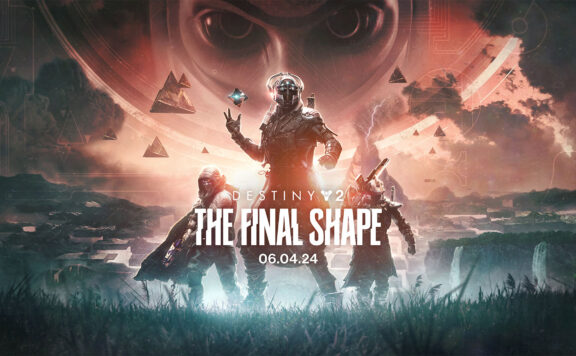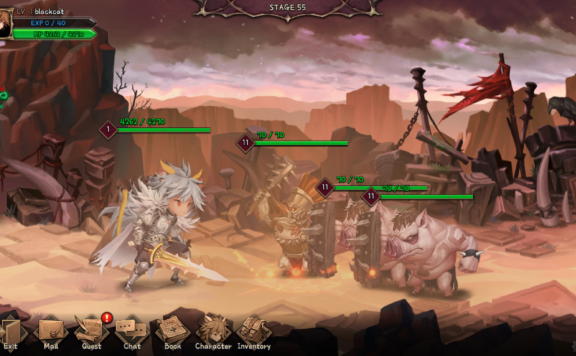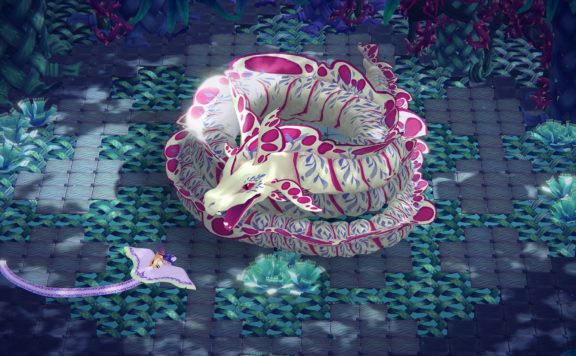Building A New World with Community
Back in November 2018, the MuHa games brought the second installment of the Thea story to early access. The follow up to Thea: The Awakening, this adventure takes adventurers on a journey inspired by Slavic mythology and puts them in the position of ancient gods. After the reawakening of Slavic deities, the follow up to this 4x style rouge like strategy is set to tackle many of the issues that the original had and move the story on.
With a tribe of followers, players picking up Thea 2: The Shattering are able to explore a vast world as nomads, master the art of diplomacy, or even conquer all that stand before their tribe. Thea 2: The Shattering is far from the everyday RPG adventure. The British-Polish indie developers have managed to weave together a game that is part rogue like RPG, survival sim, 4X strategy, and card game system. It’s a mix that sometimes and sometimes felt stunted when the first iteration of this adventure awakened.

After a less than stellar start on Kickstarter for the first Thea game, the second iteration’s approach absolutely dwarfed the first game’s response, exceeding its target and hitting £51,513 in pledges. This time, the difference seems to all be down to community. While MuHa games have grown from a two-person project back in 2010 to a larger distributed indie team, the developers behind The 2: The Shattering are quite clear that they could not take us to this world without the help of their community.
While work on Thea 2 continues in Early Access, we took some time to talk to Mila Irek about the different community makes to MuHa games and the Thea franchise.
Gamespace: Thanks for spending some time with us today. Can you tell us a little about what you do on Thea 2?
Yuuki: Sure, My name is Mila, Yuuki, Irek and I a writer and lead quest designer at MuHa Games.
Gamespace: Looking back, the first installment of the Thea franchise failed on Kickstarter but the most recent iteration clearly met its target. Do you feel like there was any change in the way that you approached the second campaign?
Yuuki: I wouldn’t say so. The difference has been the community, I would say. We actually had two failed Kickstarters for Thea: The Awakening. One of those was in 2014 and one in 2015. Thea is a little bit of a hybrid monster. It has a number of different genres and, initially, people may not have been quite sure what we were doing the first time around. As an indie, we also struggled with our reach.
With Thea 2: The Shattering, I would not say that we have changed our strategy. The difference is that by the time Thea 2 was into its Kickstarter, we had an amazing and committed community. The successful Kickstarter for Thea 2: The Shattering was mostly funded by fans of the original game. The statistics from our Kickstarter back this assertion too. For a good proportion of the backers of Thea 2, they were first-time backers. This supports the idea that they were likely Thea: The Awakening fans, rather than people we had not reached for the first time.

Gamespace: If the key to the second Thea’s Kickstarter success is a great community, what do you feel invests those players in coming back to your world?
Yuuki: I think its a number of things. One of those is definitely our open approach and good communication. We tend to try to be very vocal with our community. You’ll find that we try to make the effort to read every post and respond as much as possible. While that can be stressful sometimes, it results in a close relationship. It’s something that I imagine you could be scared of, exposing yourself, but we tend to embrace that openness.
Gamespace: Has that relationship changed over time?
Yuuki: Absolutely yes. The way we communicate has changed a lot. With Thea: The Awakening, the team could find ourselves on the Steam forums trying to answer every questions and action every post. Now it’s a mix and you’ll mostly find us on Discord. It makes communication a lot easier and more direct. It suits us as well. Discord is kind of our office. So, as a team, we are naturally on Discord when we are working. It makes us much more available to the community and them to us. I would really recommend Discord as a tool for any indie company.
Gamespace: Taking into account that directness that you now have with the community, has their influence impacted the way that both these games have developed?
Yuuki: Absolutely. Both Thea: The Awakening and Thea 2: The Shattering were, and are early access titles and the first of these had a very short early access period. Even within those two months, however, we made a ton of additions and changes that were guided directly by player feedback. This is why we went back into early access for the second Thea. Our experience with early access was really so positive. We felt that it only made the game better, and this was driven by the players.
With Thea 2, we’ve got the same team size of 4/5 people but the game is enormous in comparison. In some ways, early access, this time around, has not been as smooth as during Thea: The Awakening, but the community feedback has probably been more impactful this time around. We’ve already started making changes to the game because of it.
Gamespace: How do you foster a positive and constructive approach from the community?
Yuuki: That is a balance. You always want to be open and approachable but on the flip side that can leave you open to reacting and getting into heated discussions. It’s something that we take a lot of responsibility for and watch each other. As a team, we are human, after all. When it comes to horrible comments I even tend to find that there is something constructive in even the most unconstructive feedback, if you dig deep enough. If you really really need to respond, then kill them with kindness.

Gamespace: Does that positive environment then become self-policing?
Yuuki: Yes. I can’t speak directly for the rest of the team, but I do not know quite how I would have handled the start of Thea 2’s early access without the community. We had some fairly critical responses as things opened and our community was very good at picking up on those comments and engaging with them directly and in a positive way.
That’s also something that we’ve also seen from the move towards Discord, as opposed to Steam. I think on Steam, discussions lack nuance sometimes. In Discord, we get a lot of constructive feedback, not all of it is positive, but we don’t really get any sniff of toxicity on Discord.
Gamespace: Does that the same proactive engagement lend itself to the way the community advocate for the game?
Yuuki: Yes, We’ve already got a number of streamers and community members who you would consider influencers, actively covering the game. The biggest example of this is actually Reddit, where the community found that we weren’t making much of a presence on subreddits and forums, so they started to do it rather than wait on us. (You’ll now find sub-entries for both Thea and Thea 2 on Reddit – Ed)
Gamespace: As well as the community growth, Thea 2 must have moved on since the original game. What’s changed?
Yuuki: In essence, Thea 2 is much much bigger. We’ve all been pushing ourselves to generate a much bigger world. There are now islands and boats. Players can travel to different islands across the world, visiting a variety of biomes. Each of the Biomes that we’ve introduced each have their own difficulty levels as you visit them. In Thea: The Awakening, the world got more dangerous as turns progressed. You could end up being swamped before you were ready. Now, we have designed the world in a way that you can go to the more dangerous islands when you feel ready for them. This gives players much more control over their journey.
That kind of continues in the player progression. In Thea: The Awakening characters leveled up and skills unlocked, you had no control over it. Now you have a series of skills that you can slot as characters level up during the game as well.
We have also added multiple villages to Thea 2. In Thea 1 you could only have one village. At the moment you can have two, but we are discussing adding more than that. The co-op is up to three players and allows players to challenge each other at the card games in Thea 2. The card game itself has changed also. You still have a card game at the core of conflict resolution, but returning players should find that it is more tactical now.
Also, children are no longer items. That’s a cool little change that just makes sense, right? They are no longer items in the game, they’ve been elevated to human status. Finally, the artwork has changed significantly this time around. We had a very table top, black and white feel to Thea: The Awakening. Now we have a wider variety of art, much richer colors.

Gamespace: How influential has the community been in these changes. Is there anything that the community really pushed for in Thea 2?
Yuuki: It’s really hard to pick just one thing actually. I’d have to say villages. Based on what we’ve discussed already this was definitely led by feedback from the first game.
In Thea 2, food recipes were changed based on community feedback. At the launch of early access, we only had one food recipe. You were stuck with it throughout the game. You would have to find the ingredients you needed wherever you were in the world, however far away they were. There were some deliberate design decisions behind that, but the community hated it. Now players are no longer stuck with just one recipe. So that was the first major change we made based on the community response.
The next major milestone that the community had a hand in was challenges. Previously when you started a challenge you could only play 7 characters at one time, all randomly chosen by the system. You could potentially end up with 7 children instead of anything effective. Now, the system still chooses, but it picks the characters with the most appropriate skills for the challenge type.
I think that with every change log we do, we tend to get people responding that there are things that they reported or mentioned and it really helps with player investment in the process. It’s also really satisfying for us too when that happens.
Gamespace: When can we expect to see Thea 2: The Shattering leave early access?
Yuuki: I can’t really give a definite date yet but we are hoping for spring 2019.
Thea 2: The Shattering is already available on Steam as an early access title for £19.99. For those of you in a more mobile scenario, MuHa’s first round with Thea is available to pre-order on the Nintendo Switch eShop. Keep an eye out on Gamespace, as we’ll definitely be looking to find out how the Awakening translates to Nintendo’s mobile masterpiece.

